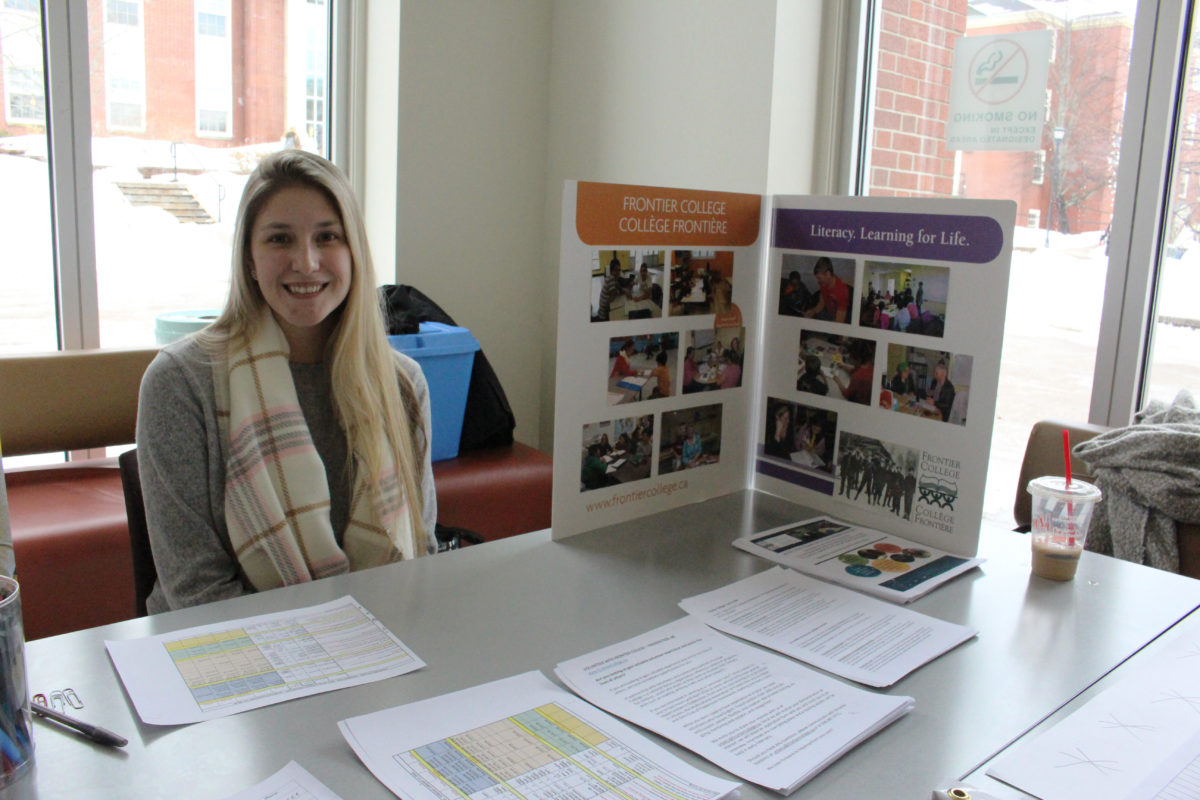With the end of second semester fast approaching, there’s one thing on every student’s mind: getting a job. To get a job you need a solid resume, and one thing that can help with that is extracurricular activities.
The St. Thomas University Students’ Union’s clubs and societies fair was held in James Dunn Hall on Jan. 24. There, students could check out all the activities STU has to offer, and see what could potentially beef up their resumes heading into job hunting season.
Skills, achievements, education and experience are all standard fixtures on resumes. But sometimes, extracurricular activities get left out of the mix, when they could bring your resume to the next level.

“It shows leadership skills,” says Trish Murray-Zelmer, STU’s employment and financial aid coordinator.
STU offers many clubs and societies, from sororities and fraternities, to a debate society, to a dance team – there’s something for everyone. Joining a club not only gives you the opportunity to enjoy time outside of class and meet new people, but it can give you experience and new skills useful to the workforce.
When looking for extracurricular involvement you’d like to one day put on your resume, it’s important to consider the job you’re applying for. If the experience you gained has nothing to do with the job, just leave it out.
“Think about the skills that are required for the job or the opportunity that you’re applying for,” says Zelmer. “Talk about the things that are in common with your target opportunity.”
Students planning on going to grad school or applying for scholarships at big universities, like the Rhodes scholarship, should also be paying attention to extracurriculars on their resumes, because a lot of those awards focus on community involvement.
Manuel Garcia is vice-president marketing for Enactus, a leadership group, and he says employers recognize clubs on resumes, making you a shoe-in for considered applicants.
“The organization itself comes up with skills that some companies are already familiar with,” says Garcia.


“As soon as they see ‘Enactus,’ they check out that person first.”
Having experience in school activities can benefit you during the school year as well. There are many jobs available on campus that require skills you can learn while participating in a club or society.
Hannah Zamora, secretary treasurer of STU’s Queer and Allied People Society, says her involvement in the group may have helped her get the position of welcome week coordinator this year.
“Showing involvement in the campus opens up opportunities at the university as well as in the general job market,” says Zamora.
On top of gaining experience, extracurriculars prove what skills you have outside of the classroom, like social skills and time management.


Kelsey Lyons, member of Iota Beta Chi Beta Chapter sorority says listing extracurricular involvement proves good work ethic to employers, among other things.
“It can show that you can handle the stress of school, which is very high, as well as extracurricular activities.”
A resume is the first step to getting a good job with crucial experience. There are plenty ways to make yours top-notch.
Never send out a standard resume. You should customize each one for the job you’re applying for. Check out the job description and requirements and make sure you focus on your skills and experiences that relate to the job, while also including extracurriculars that may put you above the rest.


Add a cover letter. This can further explain why you’re a good candidate for the job and why you want it. Always address the letter to a specific person in the organization, never just “To whom it may concern.”
Use references and ask their permission. It’s important to have people back you up on your skills and work ethic. You can ask former employers, professors or a family friend. Just make sure they’re not a family member or your BFF, as it’s a conflict of interest. Update your references as you meet new people who can give you a good review but always ask their permission first, so they’re not surprised if they’re contacted.
Job hunting can be intimidating, especially on top of university stress, but having a resume that proves you’re the right candidate for the job could have you hearing, “You’re hired!” every time.

